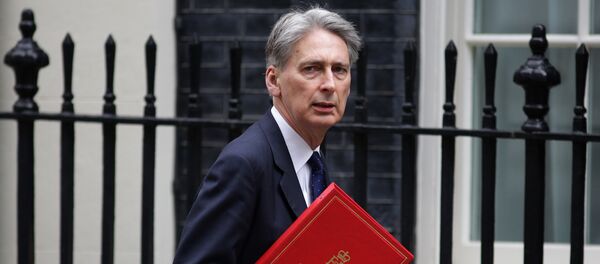The UK’s sovereign rating, meanwhile, remained unchanged at AA with a “negative” outlook: the large amount of instability and uncertainty in the UK’s economy has driven off some investors.
Even though the economy is stronger than expected previously, S&P noted, it is yet too early to determine whether the UK has successfully overcome all the challenges posed by Brexit, as certain implication might reveal themselves over a longer-term perspective.
"Were sterling’s share of allocated global central bank reserve holdings to decline below 3 per cent, we would no longer classify sterling as a reserve currency and this would negatively affect our external assessment," S&P wrote. The pound’s over-15pc devaluation during the post-Brexit turmoil could "reduce confidence and eventually threaten its role as a global reserve currency," S&P said.
The British economy, meanwhile, having accelerated to 2.3pc year-on-year in the first post-Brexit quarter, helped ease the downward pressure on the pound leveraged by the Bank of England’s rate policies and broader uncertainty
"In our opinion, Brexit presents a significant risk to the UK's track record of strong economic performance, and to its large financial sector in particular," S&P citing the post-Brexit "less predictable and stable policy framework".
The Conservative cabinet, led by PM Theresa May, has reiterated its commitment to reinstate the top credit rating for the UK at AAA level, therefore, a further S&P downgrade from the current AA negative outlook to A with a stable outlook would be scandalous for the government.
S&P also observed substantial political risks in the post-Brexit divorce negotiations with the EU.
"Complex and protracted negotiations between the UK and the EU could, in our opinion, pressure the UK's financial services sector (which is a major contributor to employment and public receipts)," said S&P. "We also think Brexit could create challenging constitutional issues if it results in a second referendum on Scottish independence."
Prime Minister Theresa May is aiming for a March 2017 exit from the European Union under Article 50. Subsequently, elevated economic and financial pressures on the UK are expected, with improvements in trade and manufacturing might or might not anyhow affect the situation in a more positive way.
"The risks of an inconclusive or detrimental outcome are… material," S&P said.




